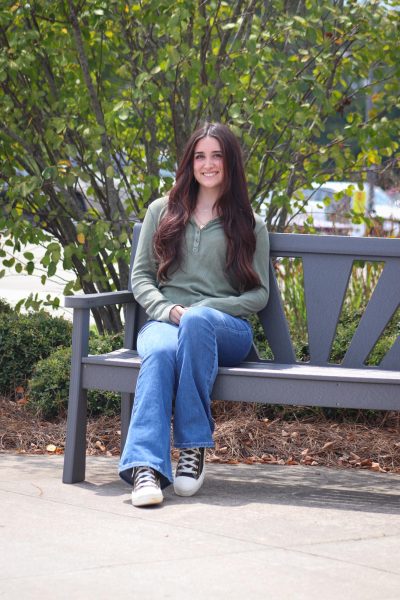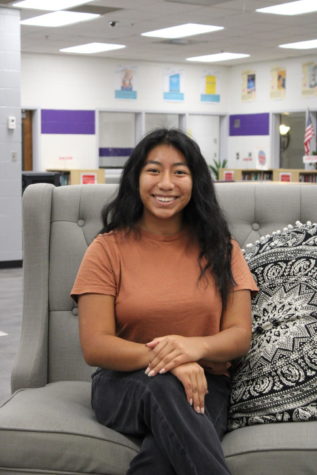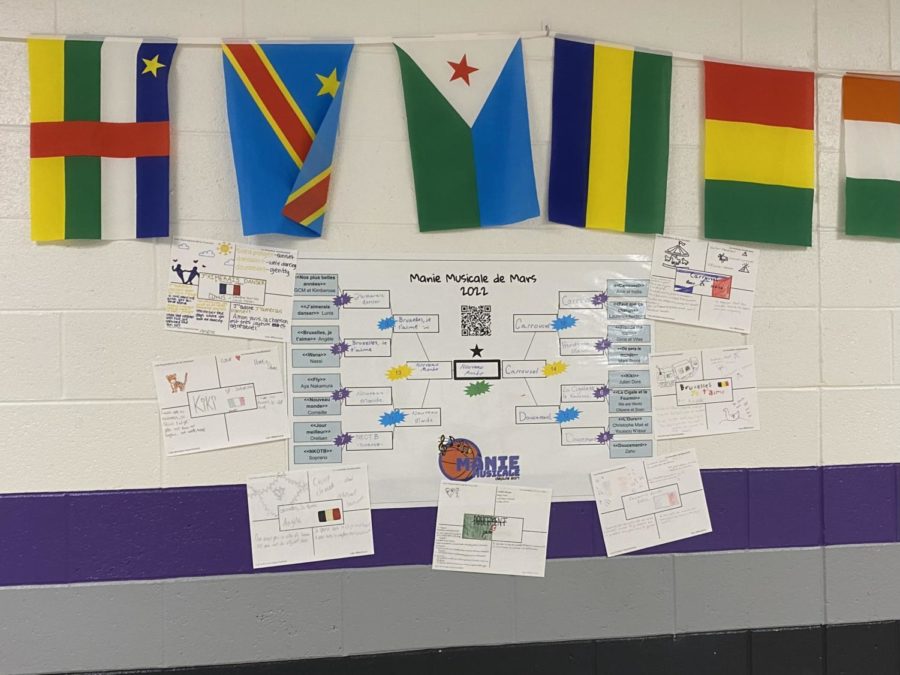Language in North Forsyth
Research project done in the world language hallway.
You have something in common with a stranger, your neighbors, family, and friends. Language. A method of communication organized by words used to construct sentences conveyed in speech and writing. There are roughly 7,000 languages spoken throughout the world. Languages, apart from English, were not taught in an organized fashion until the ACTFL (American Council on the Teaching of Foreign Language) proficient guidelines were developed throughout the nation. The proficiency guidelines helped students gain knowledge and experience in speaking, reading, and writing in the languages taught in schools.
At North Forsyth, the language curriculum is being threatened. A lack of interest in these courses could lead to a potential extinction of language classes that have been taught for many years. North Forsyth has seven world language teachers who share a common passion for culture and teaching.
Erinne Aponte expressed her words of encouragement to her students about their bilingual progression. “Do not give up. You’re going to hit a plateau. When you think you aren’t growing, but you are,” said Aponte. She also stated her worries about not taking a physical class for language and depending on an app for learning. “The problem with apps is that they don’t capture the subtleties or have any cultural awareness. So that puts people at a deficit,” said Aponte. She stated that students are encouraged to take a class because of the benefits for their future. “Language can offer students [opportunities] beyond just speaking in Spanish [like] improved SAT scores or employee ability…The higher [students advance] the better they score on the SATs. The greater their interpersonal skills, which are very difficult to teach,” commented Aponte.
First-year teacher and native speaker Juan Garcia is very passionate about the Spanish language and was more than willing to express his passion, “Language is not just about getting words out of your mouth, it’s about creating genuine connections with other people from other cultures.” Not only is Garcia passionate about the language but he is also very caring about the students he teaches the language to.“There’s so many possibilities for you to utilize this language in a global setting,” says Garcia. Knowing how to speak multiple languages opens a door to many opportunities for a student in the future. Learning a language is not easy and requires time and dedication. Garcia shared the qualities in students who are likely to continue and thrive in Spanish, “Dedication, dedication, commitment, organization, they say what they mean and they mean what they say.” All it takes is dedicated students who are willing to put their full effort in, in order to keep world languages thriving.
The head of the language department, Anna Surin, shares her outlook on world languages. Surin was born in Russia and she stated, “growing up in a monolingual environment where my home language was Russian. I started learning English of course, [and] then French.,” Surin shared her experiences with learning other languages. “So, to me, language has opened the doors to other people, other cultures, [my love for] traveling and teaching people. There is nothing better than learning a foreign language,” said Surin. Surin also commented on students’ schedules, “the advanced level [students] will take several AP classes and they don’t have room in their schedule. ROTC kids [have] two classes, so they can’t squeeze any more electives in their schedules,” said Surin. Students at North Forsyth have other classes and may not find the time for an elective. Surin encourages students to “go with your passion.”
Laura Spencer, the AP Spanish Literature and Spanish II teacher, shares her opinions on the importance of not only the Spanish language but also Spanish literature. She does, “not necessarily believe that one is more important than the other but rather, to understand Spanish literature you [have] to know the language… I don’t know if it’s more important but it’s a different kind of value.” Spencer also wanted to give some words of encouragement to students who may be afraid to learn Spanish literature in an AP style. “[Her] biggest advice would be go through AP Spanish language and if you enjoy that and you want to continue… experience in high school what a college literature course is like, that’s what AP Spanish literature is.” The Spanish language is not the only thing being affected by lack of interest, so is Spanish literature. Many students think that it will be too difficult and they don’t want to spend all their time and effort on something that they believe won’t be of much use to them in the future. Spencer wanted to address the potential loss of interest in AP Spanish literature, saying, “That’s possible. There’s a lot of things in our world right now that are probably way more interesting than reading literature in Spanish… My solution would be to, you know, as I’ve taught this course, just continue to pull in the relevance… the recurrence and themes of what’s currently going on in our society is really prevalent.”
Teachers at North Forsyth encourage students to submerge themselves into learning another culture.

Hi! My name is Kate Jennings and this year I am a senior!! This will be my third year in journalism and I am very excited to be in an Editor in Chief...

Hola! My name is Maria! I am looking forward to experiencing Journalism during this Raider-tastic year. This is my second year at North Forsyth...


